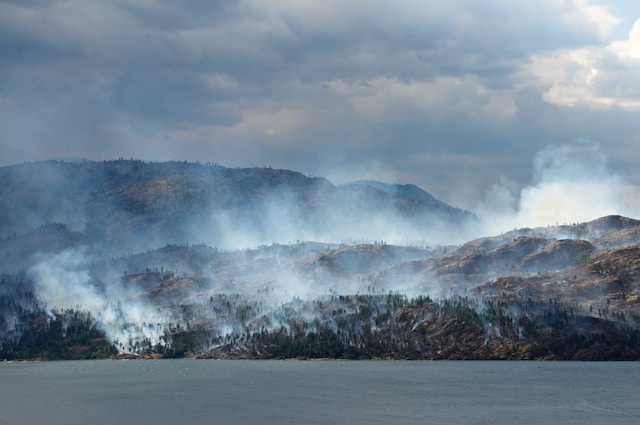[ad_1]
If you’ve ever sat too close to a campfire on a windy night, you’re likely already familiar with smoke’s immediate effects of coughing, burning eyes and a scratchy throat. But what if you kept breathing smoky air day after day? Scientists are still learning the full extent of the damage, but the research so far is clear — wildfire smoke causes terrible long-term health effects.
Problems During Pregnancy
Women who breathe in wildfire smoke during the first trimester of pregnancy can give birth to smaller babies. Pregnant women who inhale particulate matter in the second trimester or over the full length of their pregnancies are more likely to give birth too early. Both situations can have long-term health effects on the child since being born prematurely or very small can cause issues throughout a person’s life.
If you’re pregnant and living through a tough wildfire season, try to stay indoors on smoky days. Look up pollutant forecasts — which scientists calculate using special probes that sample the air — to find out when it’s safe to go outside. Keep your doors and windows closed, and consider using an air filter to purify your house.
Heart Disease
A 2021 study found exposure to the tiny particles — also called particulate matter or PM — in wildfire smoke causes heart problems. People older than 75 are more likely to suffer heart attacks after smoke exposure than on clear days. Emergency departments also see more strokes, heart failure, irregular heartbeats, coronary heart disease and heart attacks in adults over 65 who inhale wildfire smoke.
Brain Inflammation
If your mind is just as hazy as the skies during wildfire season, science might have something to say about it. A recent study found exposing mice to wood smoke caused long-lasting inflammation in the rodents’ brains.
Specifically, the hippocampus area — which allows learning and memory — became very inflamed. These unpleasant changes lasted over a month. Although the study didn’t look at human brains, mice have a lot of similarities to people, making them a common model for researching human health.
Cancer
Studying the effects of wildfire smoke is much harder than determining the effects of smoking cigarettes. It’s pretty easy to count how many cigarettes a person smokes and how long they’ve been doing it, but wildfire smoke is more nebulous because its composition changes depending on which materials the fire burns. It also blows away in the wind.
As a result, few studies have been able to prove conclusively whether wildfire smoke causes cancer. However, a 2022 paper from McGill University examined Canadian public health records to examine the effects of wildfires on people’s health. It concluded people exposed to a wildfire within 50 kilometers of a residential area in the last decade had a 4.9% higher risk of getting lung cancer. They also had a 10% relatively higher chance of brain tumors.
Protecting Yourself From Wildfire Smoke
Wildfires are getting more frequent and severe, so you need to ensure you don’t breathe in a lot of smoke. Invest in a good air filter for your home and keep the windows shut on smoky days. Wear an N95 or KN95 mask outside to prevent tiny particles from reaching your lungs. Look at air quality forecasts before going out — especially if you have an underlying health condition — and avoid vacuuming or dusting in your house during very smoky days.
By taking these steps, you’ll give yourself the best chance against developing health problems from wildfire smoke. Although it may not feel like it now, the smoke will eventually lift, letting you breathe clean, clear air once again.
Author Bio
Jane is an environmental writer and the founder and editor-in-chief of Environment.co where she covers sustainability and eco-friendly living.
[ad_2]
Source link
